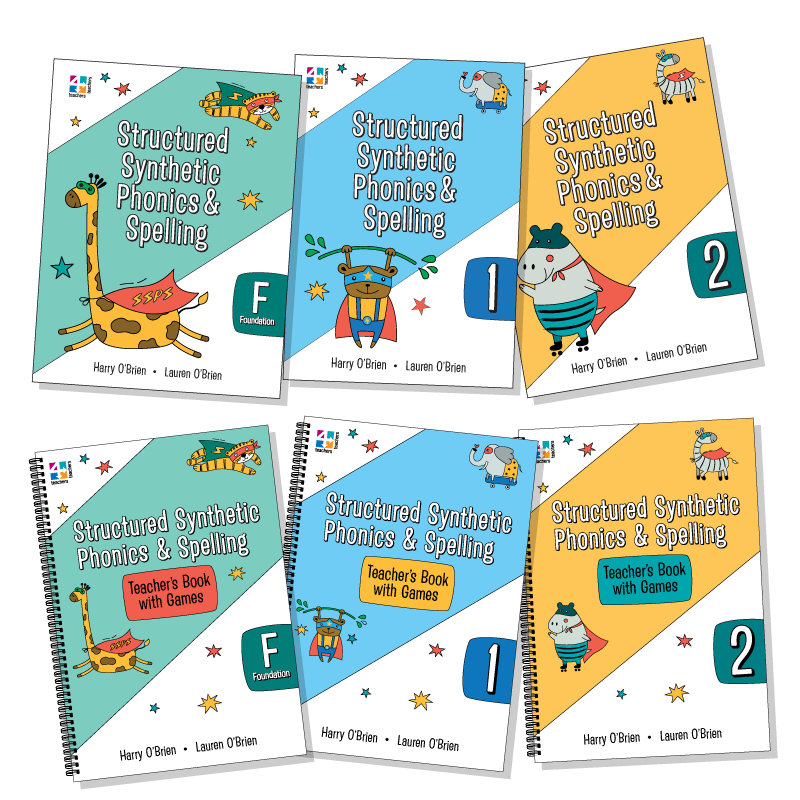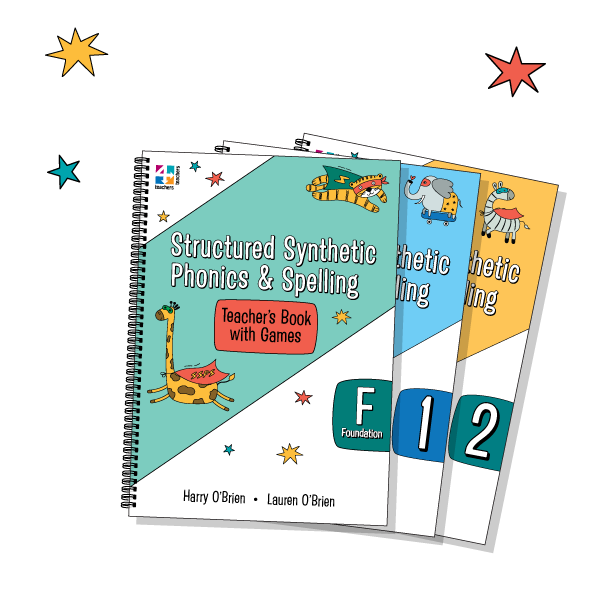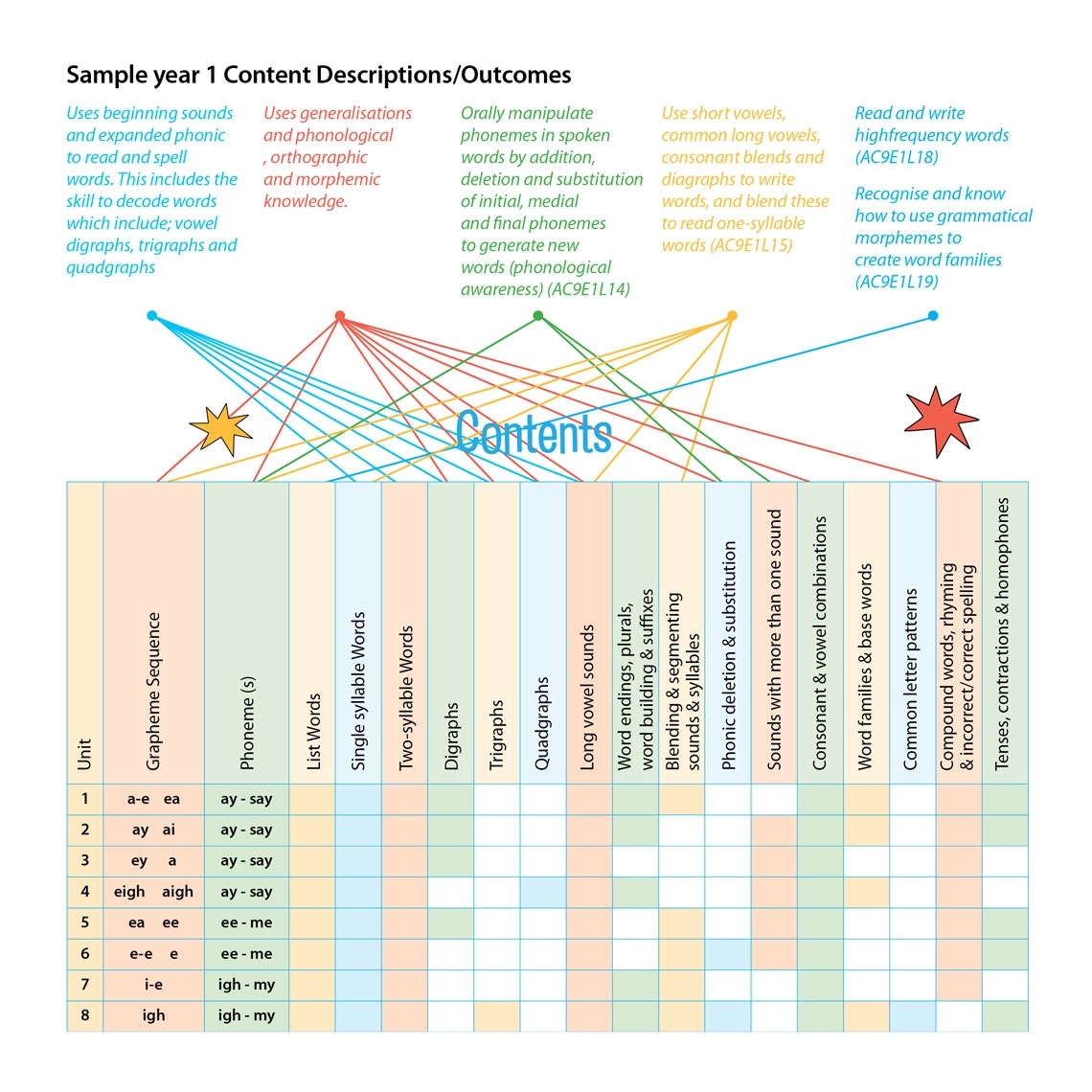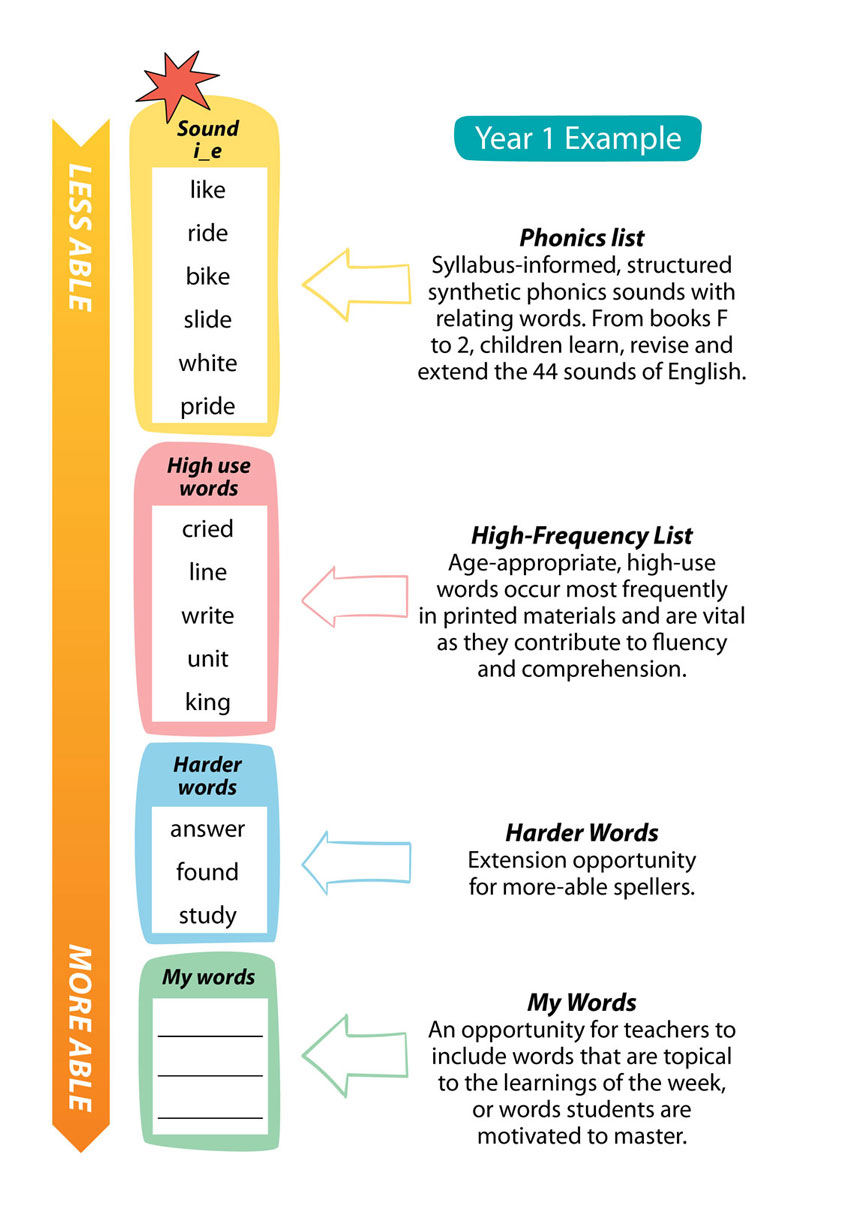Filter Results
Filter Results
Subject Area
Year Level
- Foundation (2)
- Year 1 (2)
- Year 2 (2)
Publisher
Product Type
- Student Books (3)
- Teacher Resources (3)
All Subjects
Structured Synthetic Phonics & Spelling
About the Series
Synthetic Phonics has been identified both in Australia and abroad as the most successful approach to teaching spelling and reading.
Structured Synthetic Phonics & Spelling (SSPS) is an early literacy spelling series that follows a synthetic phonics teaching sequence. The content is designed to be taught over a three-year period. The student workbooks and teacher resource books are utilised simultaneously, with the goal of supporting busy educators to achieve the curriculum-required workload. SSPS has been created to address phonic updates to the reading and spelling components of the Australian curriculums.
Student Workbooks
From books F to 2, children learn, revise and extend the 44 sounds of English. The program introduces short vowel sounds and commonly used consonants first, then adjacent consonants, digraphs, and long vowel sounds.
The focus word lists include many phonetically decodable high-use words (tier) in the weekly word lists. High-use words occur most frequently in printed materials and are vital as they contribute to fluency and comprehension. In addition to this, harder extension words are also included.
The student workbooks have a child-centered design, with vibrant and colourful graphics. Activities are engaging and include recognising phonological patterns, decoding, blending and segmenting, onset and rime, rhyme, alliteration, syllabification, and many more stimulating tasks.
Samples Pages Student Book Foundation
Teachers' Books
The sounds within spoken words (phonemes) and the written symbols (graphemes) that represent those sounds are explicitly and systematically addressed in the teachers’ books.
The Teachers’ Books include:
- explicit teaching notes
- comprehensive lesson guides
- 20+ play-based educational games and activities for each year level
- oral and written segmenting and blending guidance
- a structured synthetic phonics program created from the curriculum up
- ways to incorporate free digital resources.
Curriculum Designed Program
Phonics is the key to starting to read, write and spell written words. SSPS has been created from the curriculum up, using suggested structured synthetics instructional sequences as outlined by Australian curriculums. The Curriculum content descriptions correspondence for each year level is expanded and visually presented on the contents page of each student workbook. An extract of the Year 1 contents page is displayed below.


Evidence/Research
“The evidence for phonic effectiveness was undeniable”, Minister of Education, 2020. Following this comment, the government has made phonics a compulsory component of the syllabus, based on strong foundations using best practices. In NSW, NESA has suggested a three-year synthetic phonics sequence, which has been diligently followed in our Structures Synthetic Phonics & Spelling series.
The National Inquiry into the Teaching of Literacy (The Rowe Report) recommends a direct, systematic, and explicit phonics approach (synthetic phonics). “Findings from the research evidence indicate that all students learn best when teachers adopt an integrated approach to reading that explicitly teaches phonemic awareness, phonics, fluency, vocabulary knowledge and comprehension.”
The UK Independent Review of the Teaching of Early Reading (The Rose Report) provided clear evidence that a systematic phonics approach, which is generally understood as ‘synthetic’ phonics “offers the vast majority of young children the best and most direct route to becoming skilled readers and writers. When thinking about phonic work, what most people have in mind is the teaching and learning of reading. However, phonic work is also essential for the development of writing, especially spelling.”







